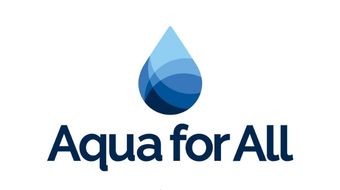The Toilet Board Coalition is pleased to announce the launch of a new initiative with our partner Kimberly-Clark – the Women in the Sanitation Economy Innovation Lab.
Powered by the Toilet Board Coalition, with the strategic support of Kimberly-Clark under the Kotex brand, the Women in the Sanitation Economy Innovation Lab is intended to cultivate and catalyse early stage ideas and businesses within the Sanitation Economy that are either women-led and/or women’s health focused.
There is a clear need for more innovation and business solutions to meet exploding consumer demand and to close the gaps on hygiene, including women’s health. We are excited that this new initiative will address this need, by promoting women’s empowerment and helping fill the existing pipeline gaps in women’s leadership in products and services within the Sanitation Economy.
We are particularly proud to have Kimberly-Clark’s Kotex brand providing strategic support and mentorship to this initiative as part of its ongoing commitment to opening doors for all women. Kotex exists to ensure a period never gets in the way of any woman’s progress.
OUR PROGRAMME
Who is it for?
Early stage businesses within the Sanitation Economy that are either women-led and/or women’s health focused. You will find below the five businesses that we have selected for this first iteration of the programme.
Our offering:
As part of the Innovation Lab, entrepreneurs receive:
- As part of the Innovation Lab, entrepreneurs receive:
- World-class support and mentoring from Kimberly-Clark employees
- Access to Toilet Board Coalition’s secretariat team
- Training and webinars on business topics
- Access to our network of sanitation entrepreneurs
- Guidance and development of a custom workplan to bring their ideas to life
Timing:
The programme will run for six months, starting in October.
OUR VISION FOR THE INNOVATION LABS
In addition to the established Sanitation Economy Accelerator Programme, the Toilet Board Coalition (TBC) has expanded its reach to proactively call for catalysing innovations and business models that fill the gaps needed to leapfrog to next generation sanitation systems. Called the ‘Innovation Labs’, this format presents a framework for the TBC to target specific gaps in the Sanitation Economy from a technological, business model, demographic or geographical perspective.
The vision for this programme is to incubate innovations and business models from various geographies and led by diverse sani-preneurs so that they are ready for acceptance into the Sanitation Economy Accelerator programme and then can transition into growth stage via support in the TBC’s demonstrator project programme.
For more information on this programme or to express interest in joining the next round, please contact Jasmine Burton, Sanitation Economy Accelerator and Innovation Lab Manager, burton@toiletboard.org.
MEET OUR ENTREPRENEURS:
BE GIRL INC, USA
Be Girl is a social enterprise that takes a design-driven approach to menstrual health and hygiene. We challenge the status quo by using design to re-brand menstruation and build a world where all girls understand, own, and love their bodies. We work to achieve this vision through distributing our sustainable, high-quality menstrual products, delivering age-appropriate menstruation education programs, and creating transformative messaging for a stigma-free world. To date, we have put over 130,000 sustainable menstrual products in the hands of girls globally and educated over 30,000 girls and boys about menstruation.
MAMA TOTO CLOTHES DIAPERS ENTERPRISE, Kenya
MamaToto is an early stage social enterprise that provides modern cloth diapers and laundering services across all income levels in Nairobi, Kenya. These diapers improve sanitation and lead to less disease while saving the environment from disposable diaper waste. Parents in Nairobi rely on handwashing cloth diapers and generally lack both the proper facilities to fully sanitize the diapers and outdoor space to dry the diapers. Parents will register for diapers and laundry service via our website, app, USSD coding, or convenient kiosk and schedule the quantity, size, and delivery/pickup of their needed cloth diapers. They will choose between home pickup/delivery or a convenient kiosk drop /pickup point.
TURN AND FLOW, UK
Turn and Flow are developing a service to recycle organic pads and tampons, turning them into renewable energy and fertiliser. The service will give people who want to menstruate sustainably, an alternative to reusable products and an easy way to do so. The main goal is to integrate organic menstrual waste into large scale recycling facilities. To do this Turn will encourage menstruators to use Turn certified* organic period products and will introduce a recycling bin and service into the toilets of participating venues. *Products must be recyclable in order to go into the recycling system. Turn will test and certify individual products and create a clear identification system for compliant products.
SYNA CONSULTANCY LTD, Kenya
Syna Consultancy is a social enterprise that’s dedicated to providing equitable and inclusive sanitation solutions. Our top priority is the achievement of access to safe and adequate all-inclusive water and sanitation paying special attention to the needs of marginalized groups. These include people with special needs, people who are physically challenged and the aged. To help us achieve this, we have developed the “Utulav toilet”, a safe and hygienic portable toilet for mobility challenged persons.

USAFI SANITATION LTD, Kenya
Usafi Sanitation is a local Kenyan company that specializes in the distribution and selling of Eco Friendly sanitation solutions. We have partnered with the leading toilet manufacturers who design and manufacture sustainable sanitation solutions and other green innovations. Our vision is to improve sanitation, enhance lives and improve human dignity, eliminate sanitation challenges, eradicate water borne diseases by ensuring people have access to proper sanitation by providing Eco Friendly sanitation solutions. Our goal is to ensure that communities, schools and homesteads have access to a decent toilet and totally eliminate the use of pit latrines and other open toilet methods of managing human waste






